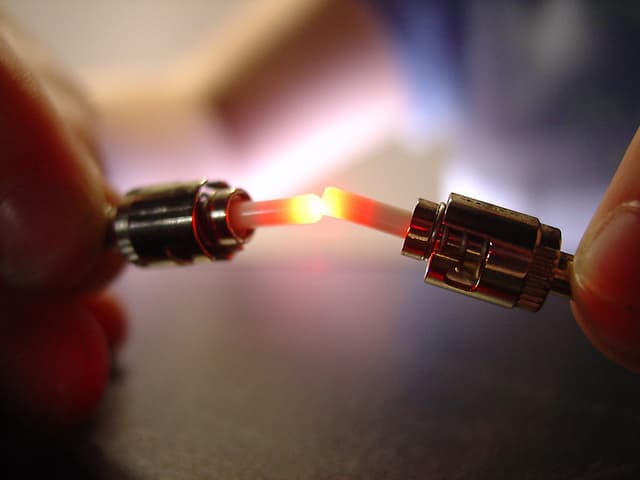Fibre Optic Data Communication To Reach 2x The Distance - UCL Researchers
Breaking barriers and limits to the reach, a team of researchers from University College London (UCL) have come up with a method that could process fibre optic signals such that they travel twice the distance (from as much as 3190km to 5890km) at which data travels without a glitch through sub-marine cables. Since the need for electronically boosting the signal is eliminated, the new method can reduce costs of long-distance communication over optical fibre cables. The technique is ingenious as it also has a mechanism to correct the data if it's corrupted in the transmission process. The process of correcting data is done at the receiver end instead of introducing extra component within the link.
The UCL researchers have incorporated this correction mechanism such that the useful capacity of the fibre optic cables is increased. It makes optimum use of resources and saves cost as changing the receivers is far cheaper and easier than re-laying cables.

With the ever-increasing demand of Internet users across the globe to get sufficient data speeds has led us to use the existing fibre infrastructure with different frequencies of light creating the data signals. The more the number of light signals are sent across these cables, the more are the chances of them getting distorted. This results in data received at the end not being error-free. The new technique by UCL researchers makes way for undoing the interactions that occur between different optical channels as they travel side-by-side over an optical cable.
This is an exciting piece of research work and we hope the team at UCL is successful in overcoming the challenges they are currently facing to meet the demand of the Internet boom over the coming year. What are your thoughts on that? Share with us in comments below.
Source: #-Link-Snipped-#
The UCL researchers have incorporated this correction mechanism such that the useful capacity of the fibre optic cables is increased. It makes optimum use of resources and saves cost as changing the receivers is far cheaper and easier than re-laying cables.

With the ever-increasing demand of Internet users across the globe to get sufficient data speeds has led us to use the existing fibre infrastructure with different frequencies of light creating the data signals. The more the number of light signals are sent across these cables, the more are the chances of them getting distorted. This results in data received at the end not being error-free. The new technique by UCL researchers makes way for undoing the interactions that occur between different optical channels as they travel side-by-side over an optical cable.
This is an exciting piece of research work and we hope the team at UCL is successful in overcoming the challenges they are currently facing to meet the demand of the Internet boom over the coming year. What are your thoughts on that? Share with us in comments below.
Source: #-Link-Snipped-#
0
